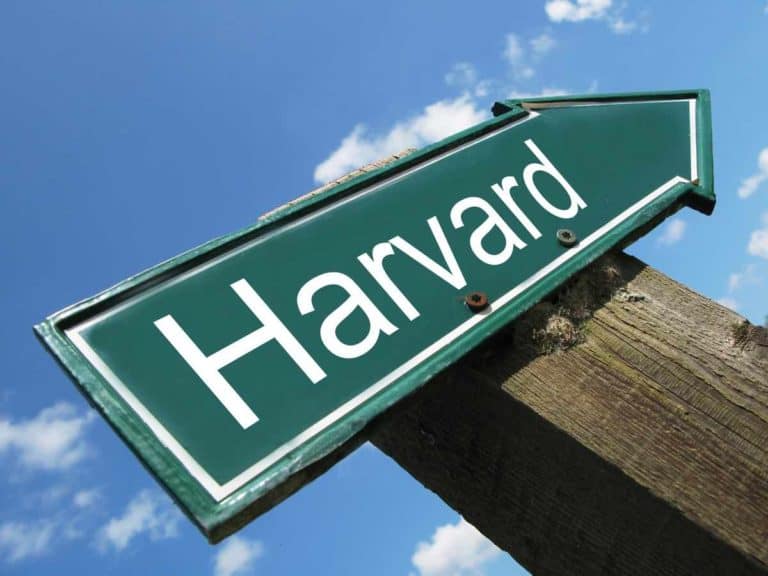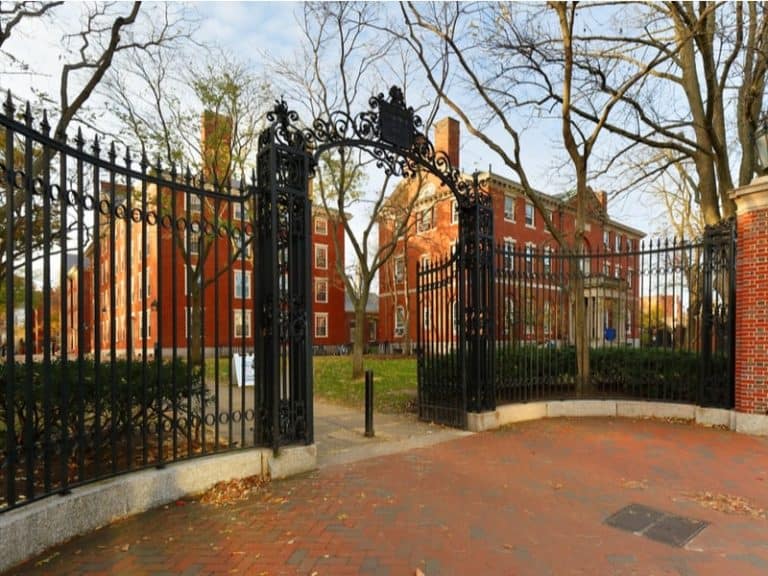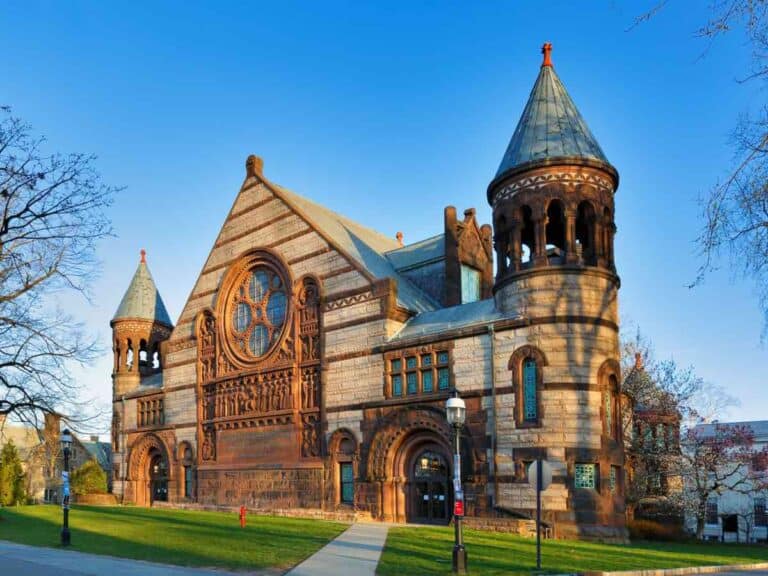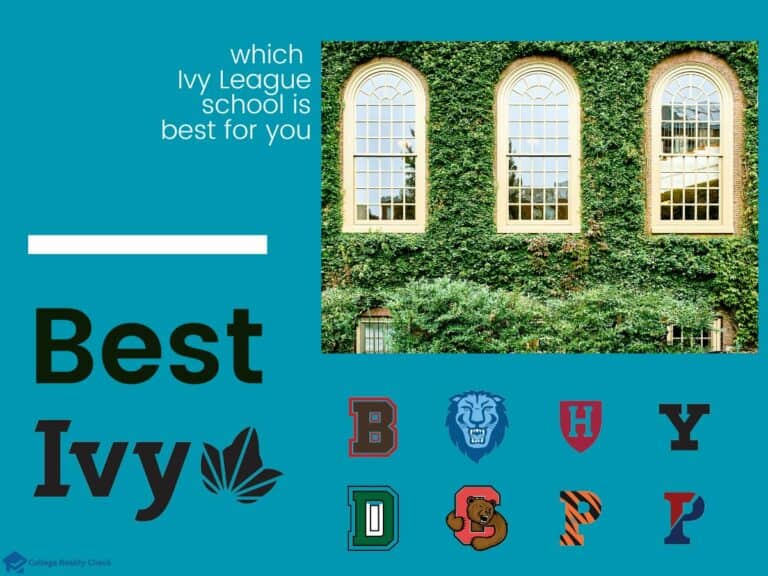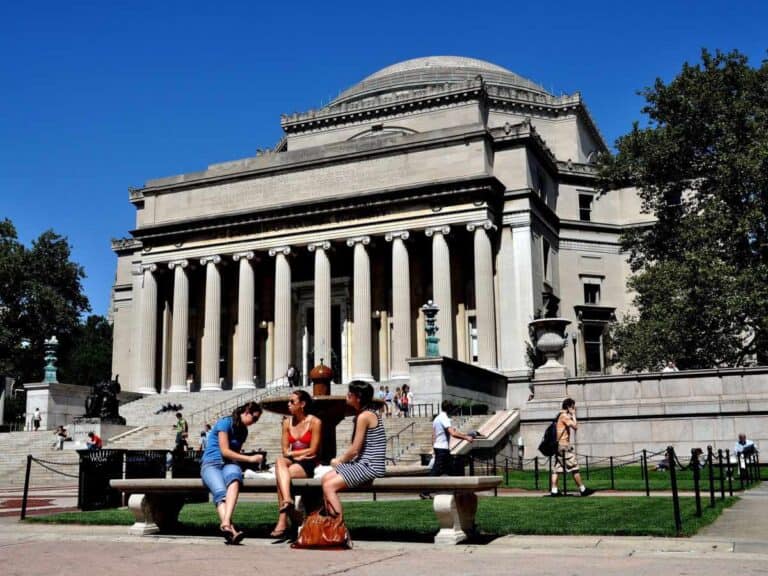Is Going to a Prestigious College (Ivy League) Worth It?
Ivy Leagues and other elite colleges and universities in the land tend to get the most applications, which serves as a testament that many dream of attending them.
Unfortunately, the vast majority of those hopefuls get their hearts broken by a rejection letter. Some accepted ones may have no choice but to sadly opt for their second-choice schools because of the cost.
Overall, attending a prestigious college, such as Ivy, can be beneficial for those who are aiming for careers in business and law. On the other hand, especially for individuals who are planning on having STEM-related careers, going to an elite school may not matter.
Read on if you are torn between a top-tier and an average institution of higher education.
By the time you are through reading this post, you will realize whether or not it’s worth it subjecting yourself to the enormous pressure of getting an acceptance letter from a selective school and shouldering the steep cost of attending it.
But before anything else, let’s answer this pressing question some high schoolers may feel too shy to ask…
What is a Prestigious College?
Taking a look at a college’s ranking and acceptance rate can give you an idea of whether or not it’s prestigious.
It’s no secret that all 8 Ivy League institutions — Brown, Columbia, Cornell, Dartmouth, Harvard, Princeton, UPenn and Yale — are some of the most prominent schools in the country and the world, too.
However, there are numerous other elite colleges and universities that are not Ivy Leagues. But since the Ivies are widely considered the gold standard, several top-tier schools are given titles with the word “Ivy” in them.
Just take a look at some of the titles given to the country’s top private and public universities and liberal arts schools:
- Black Ivies
- Hidden Ivies
- Little Ivies
- New Ivies
- Public Ivies
- Southern Ivies
And now, let’s take a look at some of the things that make a school prestigious:
Applicants
During the college application season, admissions offices at elite institutions are some of the busiest. That’s because they tend to get a lot of applications. Usually, prestigious institutions receive more than 25,000 applications.
And because many of them have a holistic admissions policy, admissions officers can get really busy throughout the admissions cycle.
Selectivity
Unfortunately for the thousands and thousands of hopefuls, only a few of them will receive an acceptance letter from high-status colleges. Many prestigious schools are so selective that most of them have acceptance rates of less than 10%.
Only applicants with high GPAs and test scores and special talents and traits, in most instances, end up getting in.
Reputation
There are various things that can affect the reputation of prestigious institutions. They can be anything from the impact of research conducted to the success of alumni members.
Reputation can affect college rankings (US News, for instance, gives the ranking factor reputation a 20% weight) and, in return, a high ranking can boost a college’s reputation.
Academics
One of the things that separate prestigious schools from the rest is high-level academics. So, in other words, earning a bachelor’s degree in them can be harder.
But it’s important to note that students are academically stronger, too, and someone who isn’t a perfect fit for the campus might find it extremely challenging, but not impossible, to succeed.
Funding
Some of the colleges and universities with the biggest endowments are elite schools. As a matter of fact, Harvard, which, as everyone knows, is a top-tier institution, has the largest endowment among American schools — $53 billion at the end of the fiscal year 2021. Most prestigious colleges have endowments of not less than $14 billion, says a US News report.
Facilities
Due to the fact that distinguished institutions are some of the richest in the land, it isn’t surprising that they tend to boast of some of the best facilities. School facilities are important in supporting academic success among students.
But be warned: colleges and universities with top-notch facilities usually have some of the steepest tuition fees there are.
Faculty
Thanks to the prestige and wealth of prestigious institutions of higher education, they are able to recruit some of the best faculty members, ranging from professors, artists to researchers.
As a result of this, they are able to draw in more students who are seeking degrees, thereby making these schools even more prestigious and richer.
Are Prestigious Colleges More Expensive?
The average tuition costs at 4-year public in-state and private non-profit schools are $9,377 and $37,641, respectively. On the other hand, the amount can climb to $59,985 at Ivy League institutions. Including other college-related expenses, the cost of attendance is around $83,046.
Before you determine whether or not earning an undergraduate degree from a celebrated school can give you a high annual paycheck, it’s important to figure out if you can afford its high asking price.
The more prestigious the college, as a general rule of thumb, the more expensive the tuition cost.
As a matter of fact, around 40% of students who opted out of attending their first-choice college or university cited that the steep cost is the primary reason.
And when schools at the top of one’s college list are concerned, almost always, they are elite — numerous college-bound teens name Ivy Leagues and Ivy-like institutions as their top-choice schools.
Just to give you a much better idea of how expensive some of the most elite colleges in the US are, here’s a table of the tuition and fees at the Ivy League schools based on the academic year 2022 to 2023:
| School | Tuition and Fees |
| Columbia University | $65,524 |
| Brown University | $65,146 |
| University of Pennsylvania | $63,452 |
| Cornell University | $63,200 |
| Dartmouth College | $62,430 |
| Yale University | $62,250 |
| Princeton University | $57,410 |
| Harvard University | $57,261 |
Interestingly enough, Harvard and Princeton have the lowest tuition and fees among all 8 super elite institutions despite the fact that both of them share the lowest acceptance rate of only 4%.
And even more fascinating is that they are also the highest-ranking Ivy Leagues in US News’ Best National University Rankings — Princeton is #1, while Harvard is #3.
But Ivy League schools are not the only expensive colleges and universities in the land. As a matter of fact, some of them have lower asking prices than non-Ivy — albeit equally prestigious — schools.
Here are the tuition and fees for the same academic year at highly ranked non-Ivy institutions:
| Name | Tuition and Fees | US News Ranking |
| Duke University | $63,054 | #10 in National Universities |
| Northwestern University | $63,468 | #10 in National Universities |
| University of Chicago | $62,940 | #6 in National Universities |
| Georgetown University | $62,052 | #22 in National Universities |
| Carnegie Mellon University | $61,344 | #22 in National Universities |
| CIT | $60,864 | #9 in National Universities |
| Johns Hopkins University | $60,480 | #7 in National Universities |
| Vanderbilt University | $60,348 | #13 in National Universities |
| University of Notre Dame | $60,301 | #18 in National Universities |
| MIT | $57,986 | #2 in National Universities |
| Emory University | $57,948 | #22 in National Universities |
| New York University | $58,168 | #25 in National Universities |
| Stanford University | $56,169 | #3 in National Universities |
| Rice University | $54,960 | #15 in National Universities |
In the table above, none are public institutions of higher education.
Everyone knows that government-funded colleges and universities have lower asking prices than their private counterparts since the taxpayers’ money takes care of some of the tuition — the average tuition costs at 4-year public schools are $9,377 (in-state) and $27,279 (out-of-state).
However, it’s important to keep in mind that public is not always cheaper.
Case in point: the University of Michigan – Ann Arbor. Ranked #25 in National Universities by US News and #2 in Top Public Universities in America and #1 in Top Public Universities in Michigan by Niche, out-of-state tuition and fees at this public research institution cost $57,273, which is slightly more expensive than tuition and fees at Harvard.
Another expensive highly-ranked public institution is the University of Virginia — its out-of-state tuition and fees amount to $56,837, which is higher than tuition and fees at elite private schools such as Rice and Stanford.
But when assessing the cost of a bachelor’s degree, don’t just take a look at the sticker price.
Most undergraduate students do not pay the full sticker price, or the cost of attendance advertised by colleges and universities. It’s the net price that you need to check out, which is the sticker price minus scholarships and grants.
The net price at the same institution can vary from one first-year student to the next as it’s based on the personal circumstances of a student.
Since prestigious institutions of higher education are some of the wealthiest, many of them are the most generous when it comes to financial aid.
As a matter of fact, the average value of financial aid packages among the top 50 schools amounts to $47,895. The said amount is 2.3 times more than the average financial aid among more than 1,240 schools surveyed.
Based on a report by CNBC, here are the top 5 private institutions for need-based financial aid:
| Name | Average Financial Aid | US News Ranking |
| Princeton University | $61,928 | #1 in National Universities |
| Yale University | $61,067 | #3 in National Universities |
| Pomona College | $55,485 | #3 in National Liberal Arts Colleges |
| Vanderbilt University | $54,417 | #13 in National Universities |
| Vassar College | $53,699 | #13 in National Liberal Arts Colleges |
Are Graduates of Prestigious Colleges More Successful?
The name of an elite institution on your resume can make you stand out from other candidates easily.
According to a report by QS Top Universities, among all Ivy Leagues, graduates of UPenn receive 30.6% more job callbacks than what’s average for all Ivy League graduates. Yale graduates, on the other hand, get 30.4% more job callbacks.
But when it comes to job placement, which means employment in careers graduates were trained in, none of the Ivies seem to shine.
Well, at least according to the Top 10 Schools for Job Placement by College Ave. Student Loans, which is a Wilmington, Delaware-based company whose mission is to make getting a private student loan for college better.
Let’s take a look at the said list:
| School | Job Placement Rate |
| Quinnipiac University | 96.10% |
| Augustana University | 96.05% |
| Ohio Northern University | 95.86% |
| Stonehill College | 95.83% |
| Lebanon Valley College | 95.63% |
| Marquette University | 95.55% |
| Illinois Wesleyan University | 95.45% |
| Providence College | 95.28% |
| Saint Anselm College | 95.21% |
| Saint John’s University | 95.16% |
But we have to admit that, in certain careers, people who graduated from elite institutions tend to excel more.
For instance, 8 out of 9 Supreme Court justices as well as a fifth of all the federal judiciary went to Harvard and Yale. Still, the rest made it even though they earned undergraduate degrees elsewhere or have no Ivy League degrees.
As a matter of fact, you can be on top without graduating from one of the top colleges in the land.
Case in point: Carl Douglas McMillon, who is the CEO of Walmart, which is ranked #1 in the Fortune 500 companies. McMillon graduated with a bachelor’s degree in business administration from the University of Arkansas.
The said public land-grant research university, which is located in Fayetteville, Arkansas, is the flagship school of the University of Arkansas System.
With a current acceptance rate of 83%, the University of Arkansas is far from being a selective institution. It’s ranked #176 among National Universities and #87 in Top Public Schools by US News.
Below is a list of the top 10 of the Fortune 500 companies and their respective CEOs and their alma maters:
| Company | CEO | Earned an Undergraduate Degree From |
| Walmart | Carl Douglas McMillon | University of Arkansas |
| Amazon | Andrew Jassy | Harvard University |
| Apple | Timothy Cook | Auburn University |
| CVS Health | Karen Lynch | Boston College |
| UnitedHealth Group | Andrew Witty | University of Nottingham |
| Exxon Mobil | Darren Woods | Texas A&M University |
| Berkshire Hathaway | Warren Buffett | University of Nebraska |
| Alphabet | Sundar Pichai | IIT Kharagpur |
| McKesson | Brian Tyler | University of California, Santa Cruz |
| AmerisourceBergen | Steven Collis | University of Witwatersrand |
As you can see, only one CEO of the top 10 of the Fortune 500 companies obtained an undergraduate from an Ivy League school — Amazon’s CEO who graduated from Harvard cum laude with a degree in government.
It’s also worth noting that Warren Buffett, who is the CEO of Berkshire Hathaway, as of this writing, was once a student at the University of Pennsylvania, in particular the Wharton School of Business, but transferred to the University of Nebraska where he graduated with a bachelor’s degree in business administration.
The said institution has an 81% acceptance rate and a US News ranking of #151 in National Universities.
Whether or not Buffett’s current success could be attributed to transferring to a less prestigious school or whether or not he could be enjoying even more success these days if he stayed at UPenn is anyone’s guess.
But in the end, more important than a college’s reputation is how a student takes advantage of the opportunities to learn and grow a school offers.
Does Going to a Prestigious College Increase Earning Potential?
According to a study conducted on 7,300 college graduates, the prestige of the institutions they graduated from made little to no difference to their future earnings. This is especially true for STEM majors. In certain fields, however, the reputation of the school tends to matter in terms of how much graduates make.
There are many things that can impact how much money you can make per year.
Some of them include the industry, employer, duties and responsibilities and geographic location. And while your major can impact your paycheck, too, the name of the institution from which you completed it may mean very little to none at all.
According to an article by The Wall Street Journal, graduating from top-tier schools allows individuals to make more money only for certain professions.
On the other hand, a The Atlantic report says that graduating from an elite school won’t make you any richer than everybody else if you are a rich, white male to begin with.
But business and social sciences and humanities majors could benefit from attending schools where faculty members, academic resources, university facilities and networking opportunities are better.
The National Center for Education Statistics (NCES) says that the median annual earnings of those with a bachelor’s degree amount to $59,600. Meanwhile, the amount is $36,600 for those whose highest educational attainment is high school.
Needless to say, before you get to enjoy the perk of earning more per year, you will have to shell out money to work on an undergraduate degree.
How much you will have to spend will depend on factors such as the school and program and how soon you will graduate. And once already part of the workforce, it can take a while before you recoup college expenditures.
Suppose that you are planning on adding Harvard University to your college list as your dream school.
And you are also thinking about including the University of Wisconsin – Madison (acceptance rate: 60%) and Marshall University (acceptance rate: 98%) as your match or safety schools, both of which are obviously not as prestigious as the Ivy League.
Here’s a table that demonstrates how long it will take you to get back your total cost of attendance:
| Name | 4-Year Attendance | Starting Salary | Time to Break Even |
| Harvard University | $312,112 | $96,800 | More than 3 years |
| University of Wisconsin – Madison | $109,936 | $47,100 | Less than 3 years |
| Marshall University | $89,056 | $32,200 | Less than 3 years |
But it’s important to note that the table above demonstrates a rough computation — it does not take into account things such as educational debt upon graduation and the time it will take for a graduate to pay it off.
Similarly, it does not include the fact that majors can impact earning potential.
For instance, graduates of Marshall with a bachelor’s degree in registered nursing receive an average initial starting salary of $56,100 per year, making $18,800 more annually than Harvard graduates with a bachelor’s degree in English and literature ($37,300 per year).
When doing the math, it’s a must to consider how much money you can make by factoring salary increases over your lifetime.
For instance, 10 years from initial enrollment, the average salary of Harvard graduates increases to $136,700. Meanwhile, for graduates of UW – Madison and Marshall, the average increases after 10 years are $64,800 and $40,200, respectively.
Alumni income sources: College Simply.
Just Before You Decide Whether Which College You Go To Matter
There is no denying that attending a prestigious university can make your resume a complete standout. However, you must remember that what you do in school is more important than where you go. You can, for instance, get a mediocre education from an outstanding school as well as an excellent education from a so-so school, depending on your performance.
Disclaimer: The views and opinions expressed in this article are those of the authors and do not necessarily represent those of the College Reality Check.
